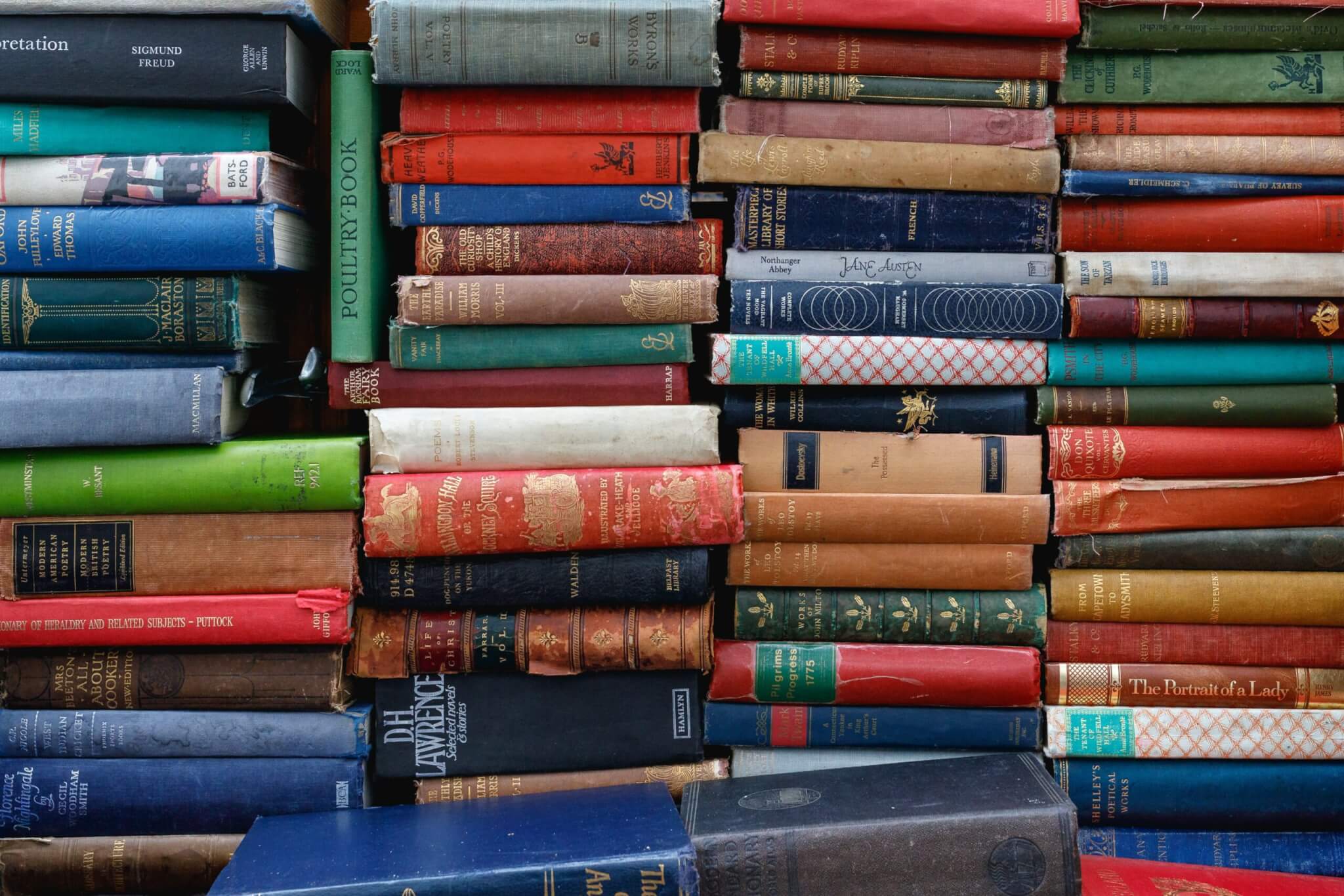What Shall We Then Read?

Several weeks ago, someone on Twitter asked people to name a book they know they should have read but are ashamed to admit they haven’t. Answers ranged from To Kill a Mockingbird, Jane Eyre, and A Tale of Two Cities (I salute this last person) to whole genres in general. Russian literature got a huge shoutout as a major gap for many people.
I responded that I have never yet read Pride and Prejudice—or any Jane Austen for that matter—but that I wasn’t ashamed to admit it. I also threw in that I have never yet read Tolkien’s The Lord of the Rings trilogy, in case any of you wanted to feel better about yourselves. It might be fun to go on with a list of All the Books I Haven’t Yet Read just to shock you and watch you gasp.
Even more recently, someone else on Twitter asked which five authors you feel the guiltiest about not having read. All kinds of responses came in about all kinds of authors. I responded that I don’t feel guilty for not having read certain books or authors and that this is a hill I will die on.
I see this take place a lot on Facebook—someone will mention that they haven’t read a Great Book and will preface their statement with an apology or a request not to be judged. Why do we do this? Why do we assume that we should feel guilt or shame over having not read something? Is it because we don’t want to appear lacking? Is it because we don’t want to be judged? Is it because we want to appear smarter than we are? Well, we are lacking, we will always be judged, and we actually don’t know anything, so maybe we can put those fears to rest. They will all come true.
For every author or book I should have read that I haven’t, I’ve read another one. I may not have read Jane Austen yet, but I’ve read Kate Chopin. I may not have read Dostoyevsky yet, but I’ve read Tolstoy. I may not have read Chaucer yet, but I’ve read Dante. The list could—and does—go on. In the myriad categories of Things We Should Definitely Read, I haven’t read many things others have, and I have read many things others haven’t read.
These lists and their tyrannies grow ever larger, and there’s no end to them. In recent days, the internet has been aflame with even more books we should read to understand current political, social, and relational paradigms. Educators of all stripes will put forth lists of books imperative to be read and taught in the classroom as well as books that they feel should never (or no longer) be read or taught in the classroom.
What should we read? Who gets to decide? It’s enough to make your head spin.
I’m not going to feel guilty for gaps—either in my literary education or the literary education I give my children—and I hope that neither do you. First, to feel guilt over something is to realize you have done something wrong, something sinful. Not reading an author or a book that someone else thinks you should have read is not a sin. I will not feel guilt or shame over sins I have not committed. There are plenty of sins that I have committed worth feeling guilt and shame for. I don’t need to add things that don’t belong to my already full plate of items to confess.
Second, one of the key words I try to use when I say I haven’t read something is the word “yet.” I haven’t read that—yet. I haven’t read Pride and Prejudice—yet. I haven’t read War and Peace—yet. I haven’t read The Lord of the Rings—yet. I’ve still got time. There are hopefully many years ahead of me in my life with plenty of opportunities to read as many of the Great Books I possibly can. At the same time, I am going to die someday, and I have many things I would like to do aside from reading. I’ve been enjoying the lazy days of summer, playing games with my son, swimming laps with my husband, talking life with my daughter, and watching movies together as a family. If I read a lot more, I could put more Great Books under my belt, but I would miss out on all the other valuable ways I also spend my time. If that means that I never get the opportunity to read The Count of Monte Cristo, although I hope I do, then so be it. I hope to look back on my life as one that was well-lived as well as well-read.
The last reason I won’t feel guilty is that I remember that a classical education—whether it’s the one I give to myself or my children or my students—is a liberal education. It’s one that frees its students. We have more books and Great Books at our disposal than any generation in the history of the world, more than any of the great authors and thinkers, and we feel shame for what we haven’t read? If I am living under the shadow of guilt and shame, I am definitely not free. If I succumb to the tyranny of Things We Should Definitely Read, I am not free.
How many books should we read? As many as we can. As that’s the key: as many as we can. We can’t read them all; we never will. There are too many. While at first this tends to create an undercurrent of anxiety in me—I will die not having read all the books (the horror)—this, too, is actually freeing. I will not be able to read all the books. So then I will read the ones I can, and I will read them as deeply as possible. I’m OK with that.
Matthew Bianco asked me if there were really zero authors I haven’t read that I don’t feel guilty about or have regret for not having read. Not even one? Nope. Not even one.
Not even Jane Austen.
Kristen Rudd
Kristen Rudd offers in-person and online literature and writing classes, tutoring, and writing and teaching workshops through http://kristenrudd.com/">kristenrudd.com. She has written for the CiRCE Institute, Center for Lit, Torrey Gazette, and Fathom Mag, and is a graduate of the Circe Institute Apprenticeship program. Kristen lives in Cary, NC and is a homeschool mom by day. By night, she’s exhausted.






